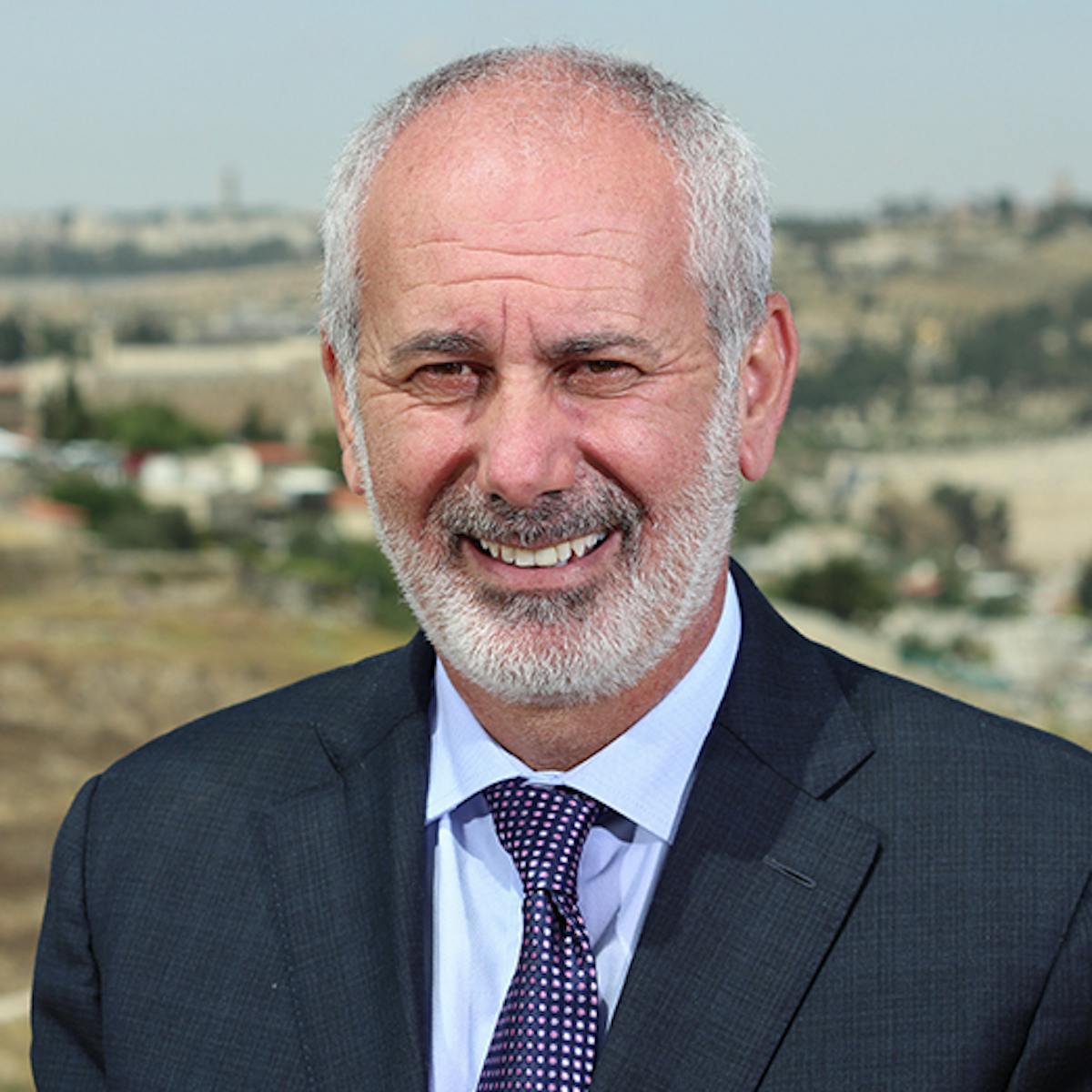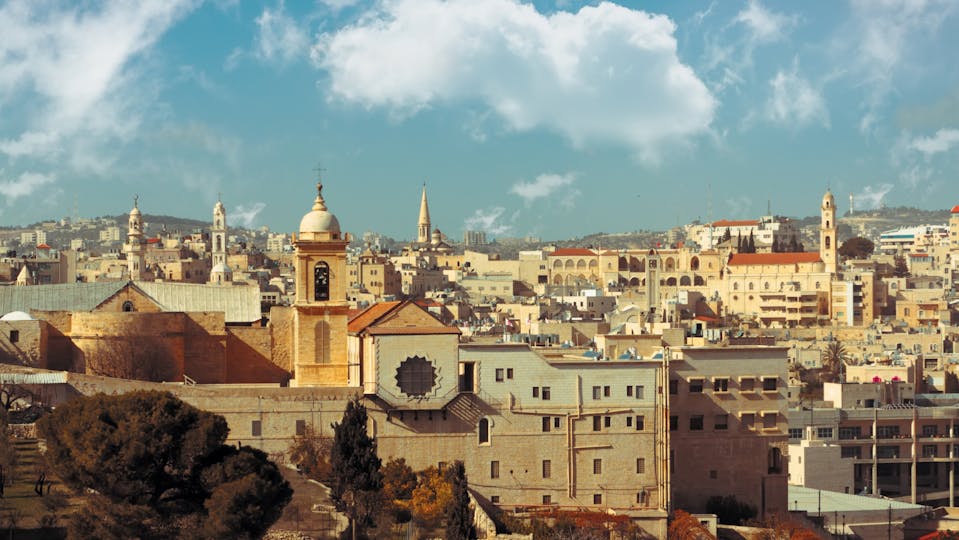Messiah Is Born!

“But you, Bethlehem Ephrathah, though you are little among the thousands of Judah, yet out of you shall come forth to Me the One to be Ruler in Israel, Whose goings forth are from of old, from everlasting...” (Micah 5:2)
Could you imagine these words, “MESSIAH IS BORN IN BETHLEHEM,” flashing across media screens and public broadcast platforms 2,000 years ago in the land of Israel? Well, this message actually did appear, kind of, if you understand how news was made and broadcasted at those ancient times.
Back then, instead of round-the-clock news flashes, the population relied on real live messengers. Journalists and commentators who presented the news were actually Bible scholars, Pharisees, and traveling Rabbis, who interpreted newsworthy events to the population in light of God’s word. And gossip, believe it or not, was as effective, electric, and almost as fast as social media transmissions are today.
The news of the birth of the promised Savior got around and lit up the hearts of all who had ears to hear, eyes to see, and hearts to understand the miracle. A little over 2,000 years ago, in the small town of Bethlehem, just south of Jerusalem, a Jewish child was born in a cave used for housing livestock on a wintry night.
And though simple, rough, and hidden from the public’s eye, myriads of Messianic prophecies and expectations foretelling the coming of the Savior were fulfilled in that one birth on that special night.
The lineage of this Jewish baby, His family credentials, the exact location of his birth, it's timing, and the surrounding national circumstances were foretold in incredible detail hundreds and thousands of years in advance through many “news anchors” from Genesis to Malachi.
The incredible prophetic attention given made this one particular birth the most predicted, anticipated, and longed-for event in the entire biblical narrative. It was so significant that both theologians and historians agree that this single birth brought about such a degree of impact to earth that the entirety of human history changed because of it forever.
Isaiah predicted that this child who “has borne our griefs and carried our sorrows…” would be “wounded for our transgressions and bruised for our iniquities…”. He described how “the chastisement of our peace was upon Him…” and that “by His stripes we are healed…”
The prophet even voiced the unthinkable, saying that “it pleased the Lord to bruise Him… to put Him to grief… to make His soul an offering for sin…” so that He would “… justify many… bear their iniquities… and the sin of many.” (Isaiah 53)
Humanity’s desperate need to be reconciled to our Creator and to His ultimate purpose for us was entirely dependent on the success of this one special soul whose birth we now celebrate.

John, the beloved disciple, wrote His Gospel from the “other side” of this remarkable work of redemption that was accomplished by the Jewish Messiah Yeshua upon His Cross. John wrote in retrospect after the Messiah had borne the punishment for our collective sin and earned the free gift of God’s righteousness for all who would believe His word.
Because of the eternal and unshakable nature of Yeshua’s victory over sin, condemnation, and judgment, John had the boldness and insight to tell the whole world that what actually took place was that “as many as received Him, to them He gave the authority (the right) to become Children of God... who were born not of blood, nor of the will of the flesh, nor of the will of man, but of God.” (John 1:12-13).
John describes a brand new (spiritual) start for the human race; a miraculous, powerful, legal, and eternal re-birth for all who would believe and receive that gift of grace, and consequently enter into God’s family.
Much can be written about the Magi, the gold, the frankincense, the myrrh, the shepherds, and the angelic choir, but we’d rather look at the Child. Such a remarkable heavenly enterprise wasn’t about to “invade” our fallen world without attention and resistance.
At the time of His birth, the “welcome party” for God’s Messiah was very small and humble, including only his young parents, a few local shepherds, and God-seeking (probably Persian) astrologists who came from the East in search of the miraculous birth foretold in the stars.
And of course, you cannot forget the choir of angels lighting up the heavens with songs and proclamations, giving us a hint of what was really taking place in Bethlehem on that Christmas night.
Apparently, Heaven wasn’t fooled at all by the unpretentious setting of this birth. What started as a humble and private event soon invited the attention of Herod’s death squad and the spilling of innocent blood.
Yet the Child was spared, escaped, and matured into a perfectly righteous and holy man whose words were divinely creative and powerful, and whose life would be freely offered, in time, as a payment for the sin of the entire world. His blood was indeed to be spilled for many… but not at His birth.
He died and was buried, even as He was born, with precise attention to details foretold long beforehand. He was perfectly obedient to His Heavenly Father because only a perfect sacrifice would suffice to turn things around according to the eternal plan. Did not the Apostle tell us that He is the “Lamb slain from the foundation of the world?” (Revelation 13:8).
Following His resurrection from the dead, having secured eternal redemption and the keys of death and of hell, a new era began for humanity; one which is not based upon our performance and (questionable) righteousness, but rather this era is founded upon HIM, His perfection and righteousness, and upon our living faith IN HIM.
Someone had to atone for our sins if we were ever to be welcomed back home, and the ONLY ONE who satisfied God’s holiness laid down His perfect life as an eternal sacrifice for us in the greatest display of love ever conceived. And that is what Christmas is all about.
As time went on and the message went out through the Jewish Apostles and the churches they planted all over the Roman Empire, the biblical and simple Hebraic beginnings of the story picked up different traditions from the many cultures and nations who accepted the Good News; traditions which are enjoyed all over the world nowadays.
And whether Messiah’s birth was on December 25 or on a different date, the undeniable fact is that He was born according to God’s promise at the right time, in the right place, to the right parents and the right nation, and that the wonder and marvel of HIS BIRTH changed human history forever and touched billions of hearts.
While Christmas is not a national holiday in Israel and is not observed by most Messianic Believers, it is nevertheless celebrated joyfully by many Christian Arabs, visiting pilgrims, and ex-pats from around the world who are drawn to the wonder and joy of this very special season.
Christmas is real, God has sent His Son to save us, it literally happened, and it happened right here in the land of Israel, in the town of Bethlehem, just a few miles away from where I am writing these words for you today.
We bless you from Jerusalem and wish you a very Merry Christmas.
Yours,
Samuel Smadja